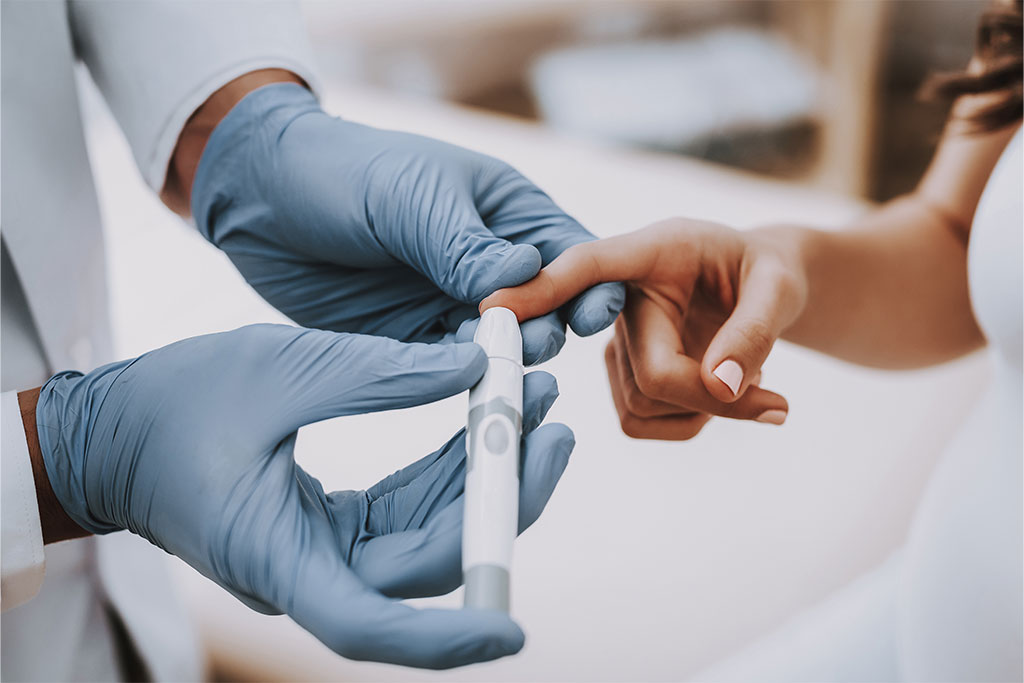Impact of Diabetes on Female Fertility
Following are the different impacts linked to diabetes and female fertility.
Menstrual Irregularities: Inconsistent blood sugar levels result in hormonal imbalances, which cause irregular periods. The latter affects fertility since it interferes with ovulation.
Polycystic Ovary Syndrome (PCOS): This frequent endocrine disorder among young reproductive-age women has been strongly linked to type II diabetes. PCOS results in poor insulin resistance, hence causing obesity, lack of ovulation, and reduced fertility.
Complications in Pregnancy: Certain conditions, such as gestational diabetes, pre-eclampsia, and miscarriage, have been linked to diabetes and female fertility. There are also unborn babies born with defects or other pregnancy-related complications birth defects whose fertility outcomes are greater when the sickness is not well controlled during pregnancy.
Reduced Ovarian Reserve: Diabetic women are likely to suffer from reduced ovarian reserves, making it difficult for them to get pregnant. This may decrease conception chances through natural or artificial reproductive techniques such as the IVF process.
Because of this ovarian failure, many women have attempted everything they can think of but cannot get pregnant using these methods.
Impact of Diabetes on Male Fertility
Following are the different impacts linked to diabetes and male fertility.
Erectile Dysfunction: For instance, erectile dysfunction may occur where the man may find it difficult to engage in sexual intercourse because he cannot have an erection or keep one long enough due to damaged nerves or blood vessels resulting from diabetics.
Reduced Sperm Quality: Literary several studies have shown that diabetes mellitus adversely affect sperms leading to retarded motility, reduced count, or even morphologically different form. Thus, diabetes causing sperm DNA damage might lead to poor fertility via elevated blood sugar levels and oxidative stress.
Hormonal Imbalances: Spermatogenesis has been linked to diabetes and male fertility, disrupting the hormone synthesis involved in spermatogenic cells. Inadequate production of spermatozoa (oligospermia) or no sperm at all (azoospermia) can be caused by hormonal imbalances, which result in male infertility.
Managing Diabetes to Improve Fertility Outcomes
Blood Sugar Control: Maintaining normal blood sugar levels is paramount when it comes to managing diabetes in people who are trying to conceive. Such tight control over glycemic levels helps regulate menstrual cycles in females, stimulate ovulation, and enhance both sexes’ reproductive functions.
Lifestyle Modifications: A healthy lifestyle consisting of regular exercise and balanced dieting will lower fertility rates among people with diabetes. The other benefits include increased insulin sensitivity towards better reproduction health outcomes, reduced inflammation, and improved general fitness.
Preconception Counseling: People diagnosed with diabetic conditions ought to seek preconception counselling before planning for any pregnancy, hence optimising their well-being while identifying potential dangers posed by the same condition. This could mean modifying medication treatments, carefully tracking glucose concentrations, or attending to various wellness needs that might affect child-bearing abilities or pregnancies themselves later on.
Collaborative Care: The complete management of diabetes-related fertility issues must use a multi-disciplinary approach that includes endocrinologists, obstetricians, reproductive endocrinology, and fertility specialists. Collaborative care ensures individualised treatment plans are provided to match the needs of every person as well as enhance the chances of successful fertility.
Conclusion
For both men and women, diabetes can have various impacts on fertility. Consequently, individuals experiencing infertility difficulties while living with this chronic disease must comprehend the complex nexus between diabetes and reproductive system health. Among the steps people with diabetes should include optimal blood sugar control, healthy lifestyle choices, seeking the services of preconception counselling before trying to become pregnant, and access to collaborative treatment in order to maximise their chances of conceiving and child-rearing desires.
